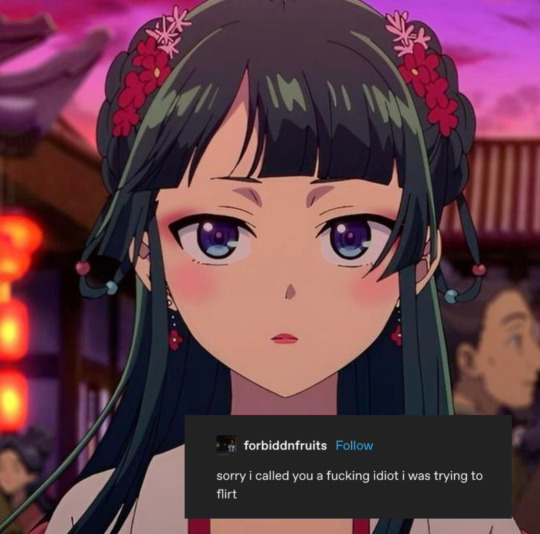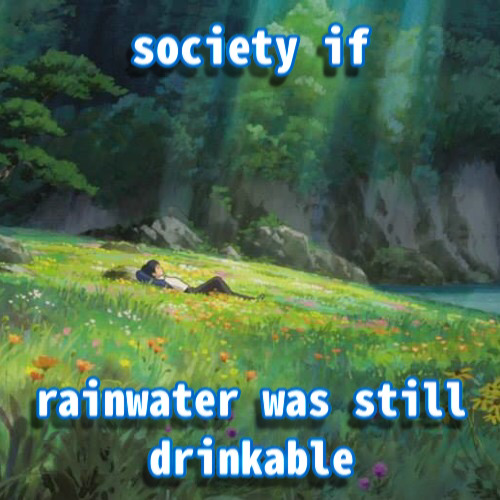she/her, 22 | mlb fanfic writer
Last active 60 minutes ago
Don't wanna be here? Send us removal request.
Text
WHY. Why is it while im in the shower my brain conjures the perfect, A+ flawless scene and dialogue but when im out its just poof. Gone. Im left with what my poor memory can salvage
2 notes
·
View notes
Text
Sometimes I see people talk about how sad or upset they are that kagehina ended up in different teams.
Usually said, because it means they’ll never play on the same team. That their paths are now diverted. Or that them as a “set” is over, no longer a “setter and spiker” and those titles now belonging to someone else.
And it makes me want to scream.
Kagehina were never meant to be on the same side of the net. Never. And thinking they should misses the entire point of the series.
Don’t confuse yourself, despite it all, Kagehina at their core, are not friends. They’re not partners; nor are they teammates.

They are rivals.
Their bond that transcends logic, their bond that allowed them to be The Freak Quick Duo, and perform the Fast Attack - wasn’t born from partnership. It was rivalry.
Kagehina is the thesis, shall we say, of Haikyuu.
Haikyuu, at it’s core, it’s not about winning a volleyball match. It is, and always will be, about playing volleyball. That’s what it is most interested in. Showing characters loving, falling in love and playing volleyball.
Don’t get it twisted, there’s nothing more important to Haikyuu than this idea that playing Volleyball is fun! Hinata himself, is the concentration of that idea.
But, in the first episode, a fundamental truth is revealed in Kitawa Daichi’s match, that Hinata Shouyo internalizes all throughout the series: If you want to keep playing, you have to keep winning.
Kageyama says it best himself “Only the strong remain in the court”.
This is why winning is important.
In other animes, winning is either a way for the main character to prove their own ideals, or for the anime to reinforce it’s own premise. Think about Kuroko No Basket, where winning against the Miracle Crew is more or less a way for Kuroko to prove their way of playing basketball is fundamentally flawed. That you cannot play basketball with one person. You need a team.
In Okiku Furikabute, winning is a way for Misahi (and Abe) to prove that he’s a skilled player.
Even in places like Free! Winning a race is a way to prove one person right, and the other wrong. That certain ideals are flawed, or that a particular outlook in life is lacking.
In Haikyuu, however, it’s different.
Winning is a way for everyone to keep playing.
While yes, they also use winning and losing to prove an ideal right or wrong - in particular the Shiratorizawa match comes to mind, in where Ushijima’s worldview of “fertile land vs the concrete” resonates with one of the core themes seen in Haikyuu - it’s one that is used less so than other animes. Mostly because (again aside from Ushijima) worldviews aren’t meant to be proven right or wrong. It’s not that Hinata or even Karasuno’s worldview or ideals should prevail: They’re all simply different ideas. Different strategies to keep winning. And losing doesn’t mean that the ideas are forever lost, or lose validity. It means they need work.
(Oikawa’s ideals are proven valid, and worthy of consideration. It is not a flawed idea what makes him lose, it’s simply a matter of the ball falling in one side of the net. Nekoma’s match is nothing about ideals, it’s simply about making Kenma admit he’s having fun in a match. Losing is not about flawed ideals or lack of talent, it boils down to a single fraction of a second mistake).
This is further proved by the fact that, at the very last Karasuno match: they lost. They didn’t become the idea, or worldview that dominated the nationals. Because that was never the story that Haikyuu was interested in telling.
Winning here, is not the point.
The point: Volleyball.
I have never seen a sports anime that is so in love, with its own sport.
Not the fictional version of the sport, mind you, in ways that perhaps Kuroko no Basket or Grappler Bakki would. That is to say, taking the original concept of that sport, and stretching it and distorting it to ridiculous lengths (which, btw, doesn’t mean the author themselves doesn’t love the sport - but that they’re way more fascinated with telling outlandish stories with building blocks they adore).
Haikyuu, though, loves volleyball.
It loves the adrenaline of running across the field to receive a ball, it loves the sweat, the heat, the burn in your arms when you receive, it loves the jumping and the blocking, and finds pleasure in the thrill of the win.
That’s why it’s able to suck you in. You’re seated at the edge of your seat watching frantically the ball, hoping it doesn’t touch the ground - in the exact same way I know playing real volleyball feels like.
So, while worldviews and ideals exist, that’s not the center of the story.
Volleyball is. And particular, this thrill and need to keep playing it.
Winning is framed, not as ideas winning over the other, but a means to an end. That end being, a need to keep playing.
Haikyuu is so in love with its own sport, with volleyball, that the worst possible outcome isn’t to lose but to stop playing.
Okay, not really.
Haikyuu is about the love of the sport - but it’s more broadly about passions (and how the manga is passionate about the sport).
About how we fall in love with things that bring us joy, and the lengths we would go to keep chasing those passions.
Tsukisima is a great example of it. His character arc revolves around finding passion and love for the sport. That's why I love the tsukiyama’s “pride” scene.

It asks, “why would you care about something? Why would you wanna put your all into a hobby, when you know it may get you nowhere?”
Tsukishima keeps thinking about volleyball as “just a club”. Something not worth caring. Why would you, when volleyball may not become your career? You can put your all into it, and still your effort won’t be enough to land you on the regulars?
And the problem here isn't that Tsukishima thinks of it as “just a club”. (We find out in the epilogue that Nishinoya didn’t go pro. To him, volleyball was just a club, and never a long term thing. Which is not framed negatively. In fact, it’s very much a positive framing. He may not have gone pro, but he carried volleyball in him as he explores the world).
It’s his inability to admit that he cares. Because admitting he cares, that he wants to be good at it, be a regular, and keep playing, means being vulnerable. It means the probability of (just like his brother) being benched. It means accepting that “giving it your all” might not be enough.
So, he asks:
Why would I “give it my all”, when it might not be enough? When we could still lose?
To what Yamaguchi answers, “pride”.
It means, “because if you go home, knowing you could have won and losing because you didn’t try, is embarrassing”.
It’s not embarrassing to care, or try to be good at something. In fact, trying to act like you don’t care or giving a half-hearted attempt when you care, is the embarrassing part.
Haikyuu encourages you to continue pursuing your passions. Not because you might win. Not because there’s a greater meaning to winning, or being the ‘best’, or the top number one. No.
It doesn’t matter if you don’t win, what matters is that you keep trying. That if you love something, you keep doing that. That no matter what you do, you do it because you genuinely wanna keep going.
It also says that, whatever you’re passionate about, ‘winning’ or ‘keeping it with you’ may not look the same. Some characters went pro, some didn’t. Some play it in their free time, some become teachers, other influencers, some other physical therapists, etc.
It’s all about following your passions, whatever form they may take.
But, in particular, Hinata Shouyo’s life itself revolves around volleyball.
To him, the worst possible outcome is to stop playing.
That’s why, up until his last match, losing was the worst thing that could happen. Because losing meant to stop playing.
Winning doesn’t mean something, aside from the ability to keep playing.
Or as Kageyama puts it in the very first episode, “only the strong remain in the court”.
That becomes the mantra that rules Hinata Shouyo’s life.
And here’s the thing that makes Kagehina the core of the story:
Haikyuu never assumes that an opponent will forever exist.
Metaphysically speaking, this is because at the time that Haikyuu started Volleyball wasn’t popular. Finding someone who would like or want to play volleyball wasn’t easy. Furudate’s explicit purpose for writing Haikyuu is to get more people to play Volleyball.
Because sometimes, you don’t have anyone who to play with.
Most sports anime focus on the idea that “playing together” means playing in the same team. This is for two main reasons.
Number one, things like basketball football or baseball are popular enough that you’ll always have someone to play against. Grab a ball, make up your own rules and you can play basically anywhere with anyone. Volleyball though…In my personal experience, it’s super hard to convince someone to even agree to a friendly net-less training.
And second, the way that they operate is, that the only true way to meet your equal is if you make such a great team that by playing together you always win. You’ll always have people who will want to beat you, so the only way to ‘play together’ is by being in the same team.
Haikyuu is different.
From the moment it starts, there’s this idea that finding an opposing team is the hardest part of it all. Unlike most animes that assumes there will ALWAYS be a more powerful person, and you’re always the under dog, Haikyuu never takes for granted a powerful enemy to play against.
Hinata starts, with no one to play volleyball with.
In Haikyuu, ���no one to play with” means “no one on the other side of the net”.
It doesn’t mean ‘I don’t have a team’, it means ‘I don’t have someone to play against’.
What Hinata always needed, was not someone to play in his team. It was someone to play against.
His poor receives are because of it.
Short story: Back in my HS days I played volleyball. I had a friend who was just as crazy about volleyball as me. We would spend hours playing 1v1. Because of that, my receives were really good. The one thing you practice in a 1v1 is receives.
But Hinata never had someone on the other side of the net to help him practice that. Because he never had anyone to play against!
In the early episodes, this is framed as a problem of not having a team. It is presupposed by Hinata that once he has a team that will be solved.
But Kageyama comes in and says ‘no. Your problem isn’t that you have a bad team, it’s that you’re bad at the game’.
For the record, he is right. Hinata is terrible at receives, which is a basic component of the game.
“Only the strong remain in the court” is reframed as the biggest issue. To keep playing, you need to be good. Hinata needs to be good to keep playing.
That’s the basis of most of Haikyuu. All the way to the nationals.
He comes to the conclusion that, if he wants to keep playing he has to be the best. Which ends with the self-destruction scene of him getting a fever. He was so obsessed with winning, that he forfeited his well-being, which caused him to lose. To stop playing.
The moral of it all, at the end, is that you keep trying. You have to keep trying to best yourself, and continue pursuing what you love. That you take those failures and keep going, all while caring for yourself.
It’s no longer “be the best”, but more “be the best version of yourself”. Keep challenging yourself and keep trying to win. But if you don’t win, you take those failures and think of a way to win next time.
Losing is not the end of the world, but a chance to better yourself.
Which is a very sweet message.
Then Kageyama’s backstory comes in, and you realize that this was always a story about these two.
Kageyama’s side of the story talks about the opposite.
If Hinata’s story is about how not being strong enough is a frustrating and lonely path, Kageyama’s is about how being too strong is also a lonely path.
What happens when you have reached all your potential? What happens when you hit a ceiling, and you want to keep going?
Yes, part of his story arc is about how his loneliness is caused by an inability to connect with others. Demanding too much from others, and never giving up control. It’s about his ‘selfish’ style, that demands from others and refuses to accommodate people who may be less talented or have other priorities.
And while, yes, part of that issue is ‘fixed’ by Kageyama being more open and flexible when it comes to playing styles - Hinata is a huge part of his arc (as is Kageyama to Hinata’s).
Hinata is the only one who would follow him. He’s the only one that would race him, who would play 1v1 for hours.
Because he’s the only one who matches his passion.
It’s even highlighted in this scene, where Kageyama acknowledges his selfish play style that demands from others as much as he demands himself - and rather than turning away from it, Hinata embraces.

In whereas Hinata very bluntly tells him that, said play style is undeniably cool. That his passions, his drive and his desire to control the court (a control born from wanting to play more volleyball) is not a flaw. But it’s instead something to look up to.
Because it matches Hinata’s own passion and drive.
Kagehina were never meant to be in the same team, at least not in the long run. Because, what it is shown at the very last part of the manga, is that to keep playing you don’t need to be the strongest. You don’t need to win.
What you need, is to find someone to play with. Someone to play against.
As long as you find someone who’ll want to play, for as long as you do, as long as you find someone as passionate as you for that which you love, you’ll always be able to keep playing.
Haikyuu is about passions, yes. But first and foremost it’s about passion for volleyball specifically. A game that cannot be played alone.
What kagehina represents in the last chapter is “keep playing”.
If Hinata’s story was about how “keep trying to be the best version of yourself, because if you do you’ll get to keep playing”.
Kageyama’s is about how “keep playing even alone, because someone even better will come along, and you’ll get to play for even longer”.
Kagehina were always mean to keep playing. But if they’re on the same side of the net, if they’re a team, then one day will come when they’ll win everything together. And eventually, like Kageyama did in middle school, hit a ceiling they can’t overcome.
But if they’re competing against each other, then they’ll always keep chasing after another. They’ll become even better by constantly challenging one another. By always trying to one up the other, by always trying to win against an opponent of equal passion and drive, they’ll become stronger. Together.
By being rivals, by being on opposite sides of the net, they’ll keep playing.
Forever.
Kagehina were never meant to be teammates. Being partners is too shallow of a connection to people as driven as they are. They need to be rivals. Always pushing each other to become better, to be stronger.
Because that’s what Haikyuu is about.
It’s not only a story about passions, and what we’ll do to chase after them.
It’s about how that passion can be at it’s most powerful, when you get to share it with other people.
It’s about how losing can be as rewarding as winning, when you get to keep playing.
It’s about volleyball, and how addicting it can be to keep playing “one more time”.
129 notes
·
View notes
Text

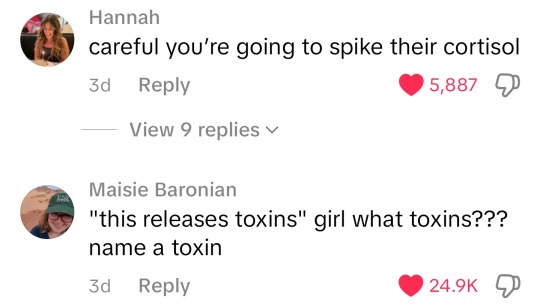
Join me on my journey to finally unbalance my hormones, toxify my body, boost my inflammation, maximize my cortisol and absolutely destroy my gut health.
89K notes
·
View notes
Text
Title: Asshole Tax and Wedding Bells
A/N: Marinette thinks they just landed a dream client. Instead, they just adopted a feral Batcat and her billionaire chaos family.
Marinette Dupain-Cheng was a legend in the wedding planning world.
She didn’t just organize weddings—she saved them.
When venues burned down? She had backups.
When dresses ripped, tore, or got wine-spilled by drunk aunts with boundary issues? She sewed new ones—by hand, overnight.
When bridezillas turned into full kaijus mid-ceremony, Marinette tranquilized them with perfectly brewed jasmine tea and a thousand-yard stare that made even the most stubborn mother-in-law fold.
And the best part? No one knew how she did it. Just that she did. Every time.
Well. Almost no one knew.
Behind the curtain, hidden in her glitter-covered office was a collection of magical gods disguised as chattering trinkets.
“Don’t book the Villa di Magnifico,” barked Tikki one morning. “The energy is rancid. Someone will fall in the koi pond. Again.”
“Tell the Jones couple not to elope,” buzzed Nooroo, floating lazily. “He’s still texting his ex. Ugh. Mortals.”
“Charge double for the ones who ask for ‘a Boho Fairy Woodland Cosplay Princess wedding but on a $200 budget.’” growled Plagg, who was currently lounging in a vintage teacup. “Pain in my whiskers.”
Thus, with the collective power of the Kwamis’ ancient wisdom and Marinette’s type-A perfectionism, the business soared. Soirée Saveurs had its name whispered between celebrities, politicians, and socialites. Some said she was psychic. Others called her a miracle worker.
One person called her dangerous.
That person? Selina Kyle.
And she meant it as a compliment.
The first time Selina saw Marinette, she was elbow-deep in silk and tears, sewing a wedding dress in the supply closet of a vineyard, lit only by the glow of emergency fairy lights and spite.
The bride’s designer gown had been ruined by a jealous cousin with a red wine “accident.”
Marinette just smiled, tied her hair up, and got to work.
By dawn, the bride walked down the aisle in a gown more beautiful than the original—one that sparkled with hand-sewn beads, magic-infused lace, and a vengeance that could cut glass.
Selina fell in love. Not romantically—she had Bruce for that—but on a primal “I-will-collect-you-like-a-shiny-rock” level.
“You’re planning our wedding,” she declared, dragging Bruce into Marinette’s Parisian office a week later.
Bruce had protested at first. Not because he didn’t trust Selina’s taste—he did. Mostly. But because his kids were feral, Alfred was passive-aggressively stressed, and he was emotionally allergic to planning anything.
Then he met Marinette.
She was young. Too young. Barely mid-twenties and already commanding meetings with New York’s elite like she had them tied in ribbons.
And yet…
He watched as she effortlessly rearranged their wedding timeline, suggested alternate locations based on Selina’s preference for moonlight and Bruce’s tragic inability to survive pollen, and even offered a side service for “handling dramatic relatives with grace and quiet violence.”
Bruce blinked. “You’re… thorough.”
Marinette gave a business-cute smile. “Mr. Wayne, I’ve single-handedly prevented five divorces, seven scandals, and one cult uprising disguised as a bachelorette party. I have to be thorough.”
Selina beamed. “We’re hiring her.”
In the car, moments after leaving Marinette’s office…
Selina slowly turned her head to Bruce. Expression unreadable.
“I’m only going to ask this once,” she said, voice low, nails tapping against the leather armrest. “Did you sleep with the wedding planner?”
Bruce opened his mouth, closed it. Rubbed his temples.
“No,” he said at last. “I slept with her mother.”
Selina stared. The silence was absolute.
“…If we just met your kid and didn’t invite them to the wedding,” she said slowly, “I swear, Bruce, I’m about to make this cost you so much fucking money that you’ll actually feel it.”
Bruce sighed.
“I’ll get the checkbook ready,” he said, resigned. “We’ll add her to the guest list.”
Meanwhile… in Marinette’s office…
The second they walked out, Marinette threw off her heels and moonwalked across her floor.
“Asshole tax~ Asshole tax~” she sang, scribbling numbers in her invoice like an ecstatic goblin. “Gonna add the asshole tax~ Asshole tax~ Gonna fuckin’ tax his ass~”
Tikki floated nearby, munching on a croissant.
“You do know what you just signed up for, right?”
“Yeah,” Marinette grinned. “Free press. Gotham elite. Triple rates.”
“Bruce Wayne’s long-lost daughter, apparently,” Plagg deadpanned.
Marinette froze. “Wait, what?”
Kwamis: 😬😬😬
Later, in Wayne Manor…
“Father,” Damian scowled, flipping through the guest list. “Who is Marinette Dupain-Cheng?”
Bruce: “...Your sister... maybe..” he says calmly as he reads the newspapers.
Tim: spits coffee
Dick: “WE HAVE A SISTER?!”
Jason: “Told you he was hiding bastards.”
Steph: “This is gonna be the best wedding ever.”
Cass: already crocheting a welcome sweater
And somewhere in an apartment…
Marinette picked up her phone to see fifteen missed calls from a Gotham number.
She looked at Tikki. “So, how bad could it be?”
Tikki sighed. “You ever seen a wedding planner get adopted by a billion-dollar vigilante crime family?”
Marinette blinked.
“...Do they tip well?”
I was half asleep when writing this, so sorry for the mistakes
335 notes
·
View notes
Text
Damian: what was it that you called me yesterday?
Tim: a parakeet
Damian: and that was an insult…how?
Tim, growing frustrated: because parakeets are the most annoying bird, and it’s not a robin
Damian: so you’re saying I’m annoying
Tim: yes
Damian: and that I’m not robin?
Tim: yes. wait wha—
Damian, smirking and cupping his hands to his mouth, full sending it: BRUCEEE TIM’S BEING MEAN AGAIN AND SAYING IM NOT ROBIN—
Tim, throwing his head in his hands: I regret ever teaching you brotherly behaviour
2K notes
·
View notes
Text
cell bio professor closed out today's lecture on free-radical oxidation in mitochondria and programmed cell death by saying "you've probably all seen those commercials for fruit juice that says it's got antioxidants, which are said to prevent this sort of thing from happening, or at least slow it down. well, they don't work. this is an inevitable fact of life— this process that lets us live is also the thing that kills us, and it's why all of us will die someday. there's no escaping that. it's been with us since the dawn of eukaryotic cells; our pact with mitochondria is to the death. anyway, enjoy the rest of your friday, and remember, exam four is next week!"
32K notes
·
View notes
Text
so turns out the batfam has accidentally and unknowingly been going viral, and not in the way you’d expect. Nope, their names aren’t even attached to it. Whose fault is this, you might ask? Bruce. Bruce, who has a social media page devoted entirely to shit his children do, and no one realizes that said children are Gotham’s princes and princesses.
Damian paints his room. He spends over two weeks on the murals. Bruce, walking in to ask Damian about patrol, snatches a couple pictures before he leaves and absently posts them. Within the week they’ve gone viral and people are asking for commissions, but Bruce never answers.
Jason’s been annotating his copy of pride and prejudice so hard that there’s more handwriting in the margins than actual text. Bruce thought it was adorable, so he posted a page. There are now literary professors asking if his son has been to college and if he would like to.
Steph and Cas wrote their own song on a dare from Dick. Bruce posts a short audio clip of it and his secretary has to rush to copyright it because people are using it as audio in All The Videos
Bruce doesn’t even realize what’s happening, really. He posts is ‘cause he’s proud, then pretty much doesn’t check the page again. It’s more a blog to him than anything else. He has no idea that he’s become almost an internet celebrity/cryptid. There are Reddit forums dedicated to the “dad with way too many fucking skilled children”. Some people say that there’s no way he has this many kids who are so good at things. Some people think he’s just one really crafty person posting a bunch of his own stuff and claiming to be a proud dad.
Tim Drake, resident Reddit Addict, is LOVING it.
Jason: *lugging a body down the street* dammit, someone took a pic back there. Fuck, this is NOT what I want to go viral for Tim: so being a Jane Austen fangirl was the better option? Jason: *trips* what—
11K notes
·
View notes
Text
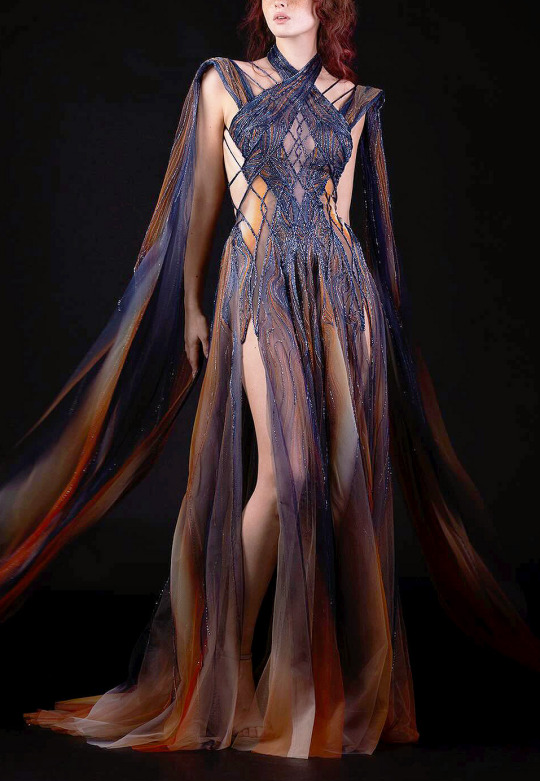
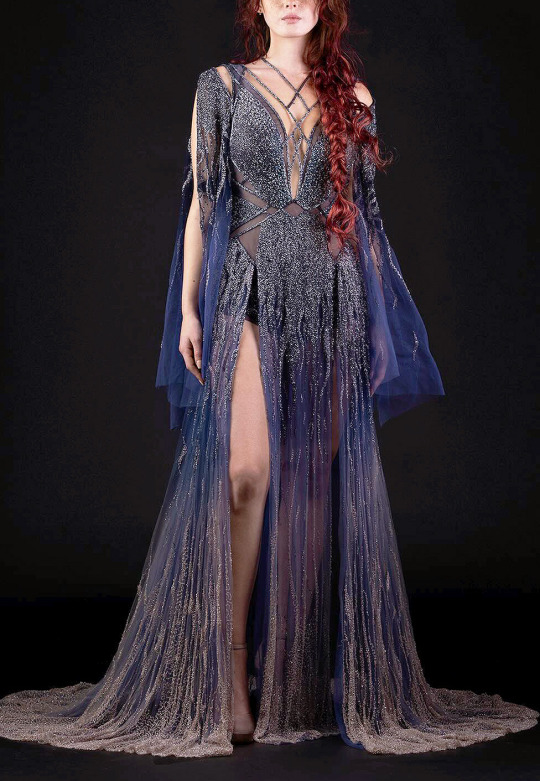
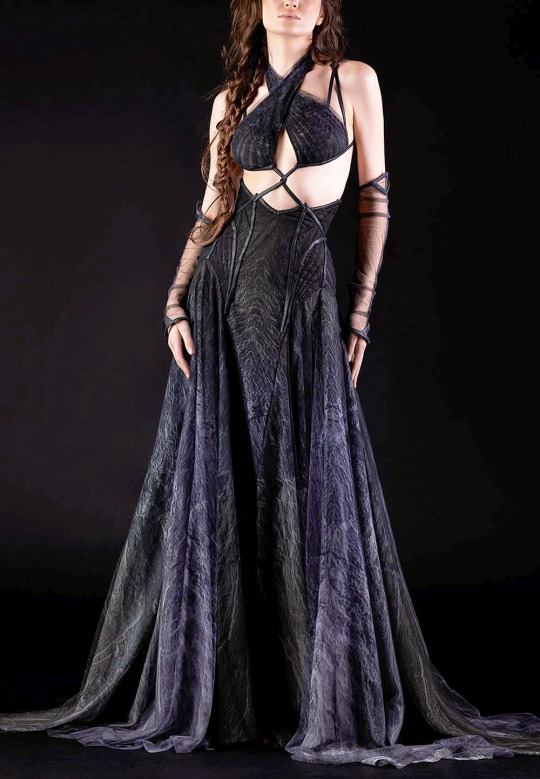
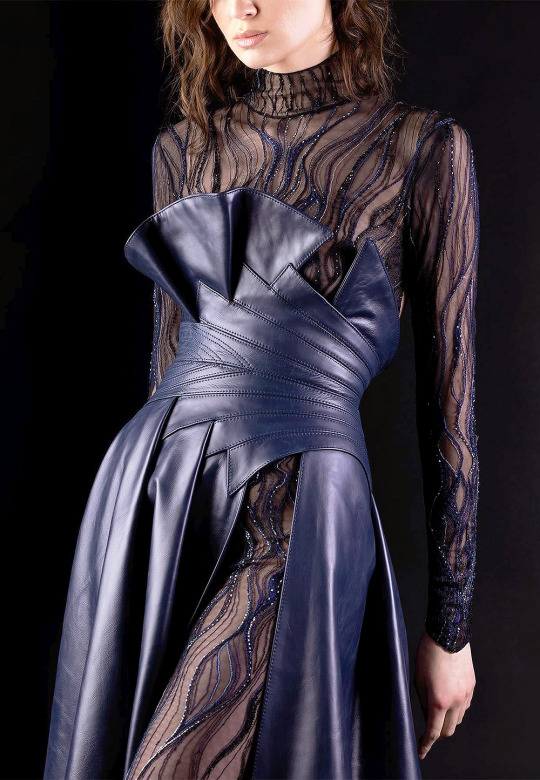
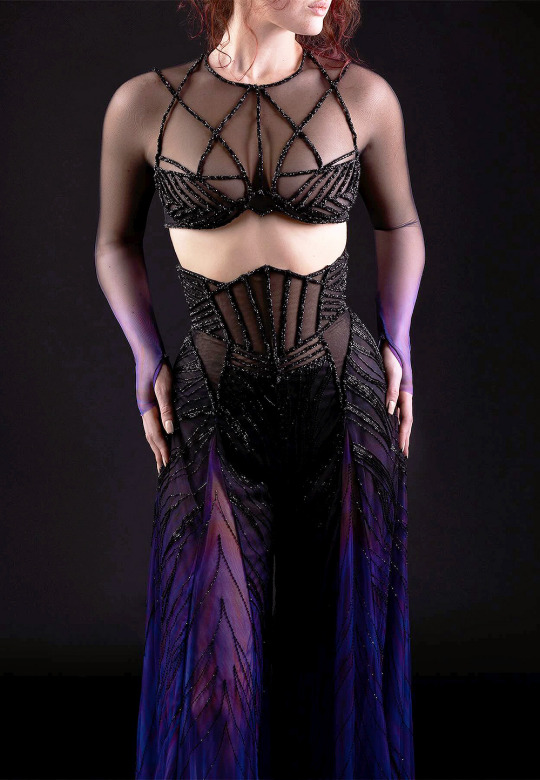
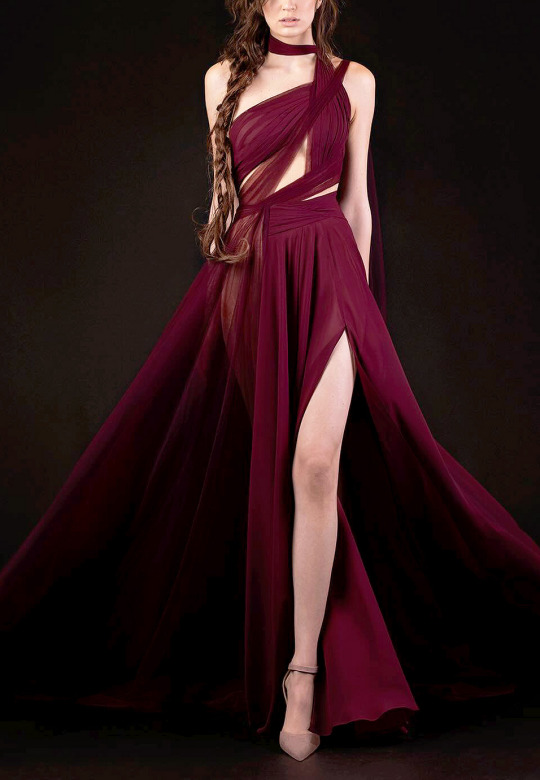
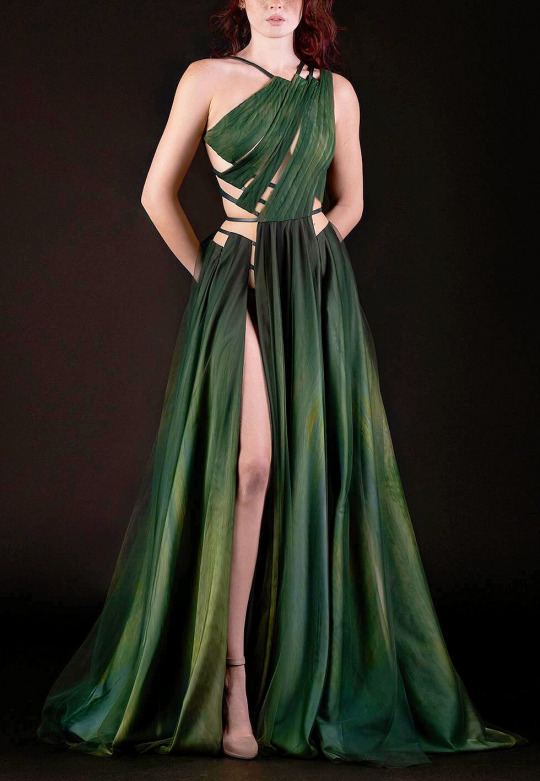
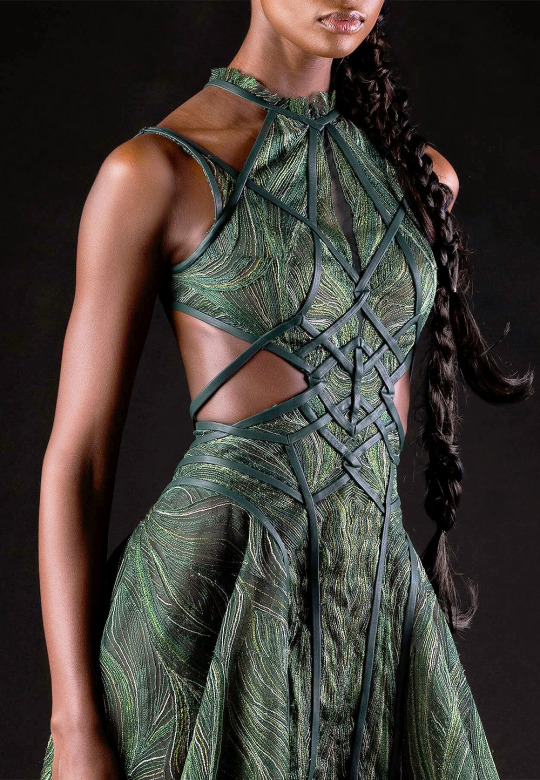

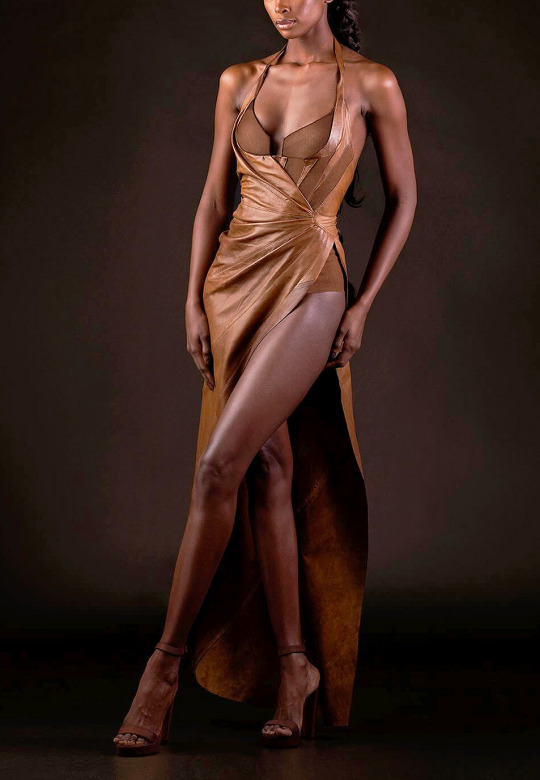
Hassidriss 'Untitled Creation' 2024 Haute Couture Collection
10K notes
·
View notes
Text
“Get a rat and put it in a cage and give it two water bottles. One is just water, and one is water laced with either heroin or cocaine. If you do that, the rat will almost always prefer the drugged water and almost always kill itself very quickly, right, within a couple of weeks. So there you go. It’s our theory of addiction. Bruce comes along in the ’70s and said, “Well, hang on a minute. We’re putting the rat in an empty cage. It’s got nothing to do. Let’s try this a little bit differently.” So Bruce built Rat Park, and Rat Park is like heaven for rats. Everything your rat about town could want, it’s got in Rat Park. It’s got lovely food. It’s got sex. It’s got loads of other rats to be friends with. It’s got loads of colored balls. Everything your rat could want. And they’ve got both the water bottles. They’ve got the drugged water and the normal water. But here’s the fascinating thing. In Rat Park, they don’t like the drugged water. They hardly use any of it. None of them ever overdose. None of them ever use in a way that looks like compulsion or addiction. There’s a really interesting human example I’ll tell you about in a minute, but what Bruce says is that shows that both the right-wing and left-wing theories of addiction are wrong. So the right-wing theory is it’s a moral failing, you’re a hedonist, you party too hard. The left-wing theory is it takes you over, your brain is hijacked. Bruce says it’s not your morality, it’s not your brain; it’s your cage. Addiction is largely an adaptation to your environment. […] We’ve created a society where significant numbers of our fellow citizens cannot bear to be present in their lives without being drugged, right? We’ve created a hyperconsumerist, hyperindividualist, isolated world that is, for a lot of people, much more like that first cage than it is like the bonded, connected cages that we need. The opposite of addiction is not sobriety. The opposite of addiction is connection. And our whole society, the engine of our society, is geared towards making us connect with things. If you are not a good consumer capitalist citizen, if you’re spending your time bonding with the people around you and not buying stuff—in fact, we are trained from a very young age to focus our hopes and our dreams and our ambitions on things we can buy and consume. And drug addiction is really a subset of that.”
—
Johann Hari,
Does Capitalism Drive Drug Addiction?
(via bigfatsun)
352K notes
·
View notes
Text
I'm curious. Reblog this if you know how to cook
I don’t even care if it’s macaroni, ramen or those little bowls you stick in the microwave. Please, I need reassurance that most of the population on tumblr WOULDN’T STARVE TO DEATH if their parents couldn’t fix them food or they couldn’t go out to eat.
223K notes
·
View notes
Photo
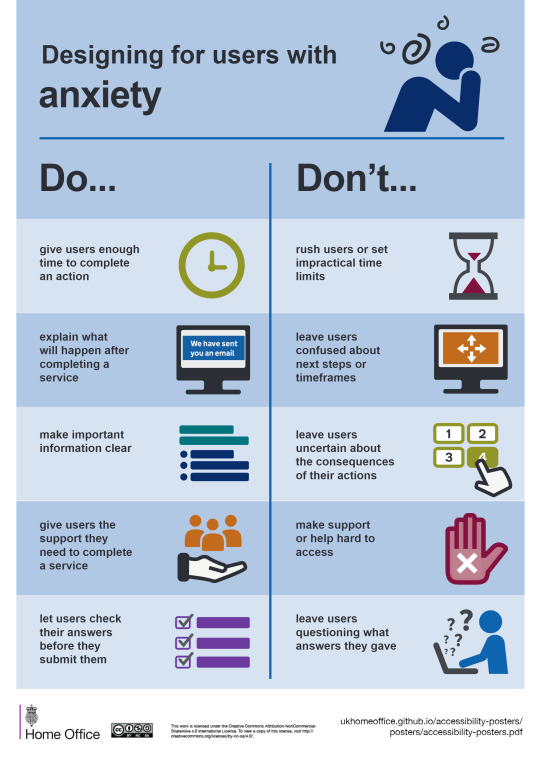
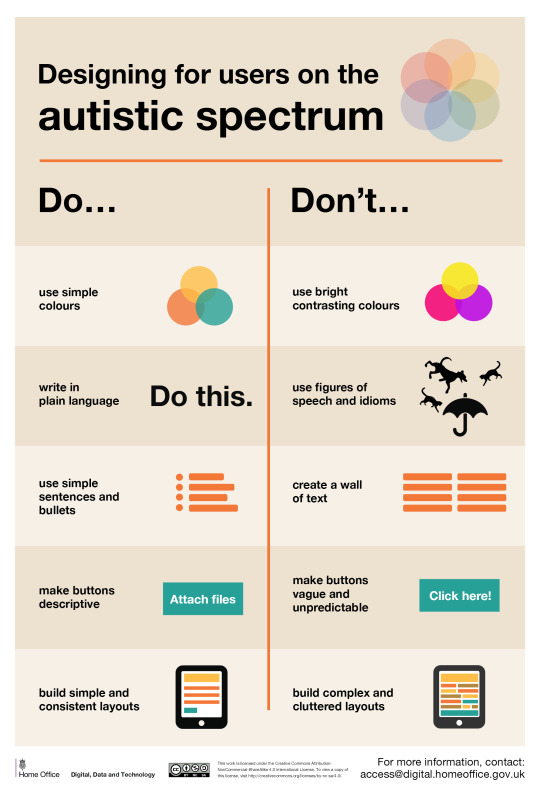
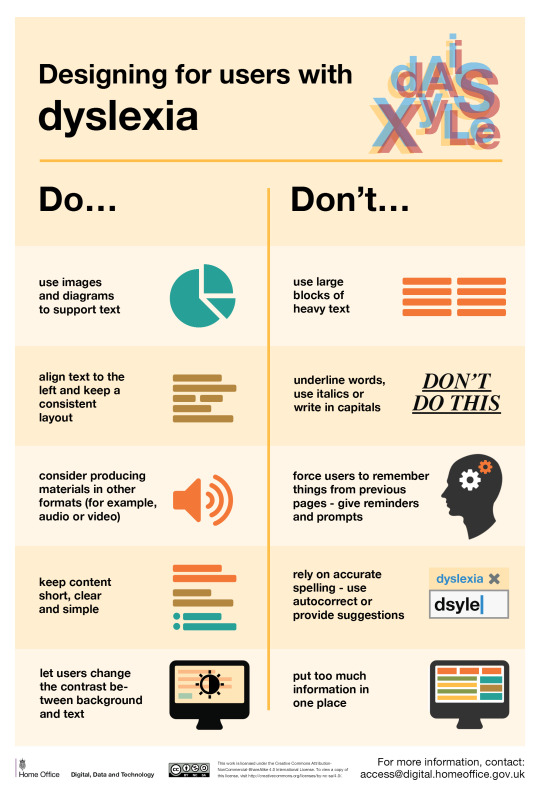
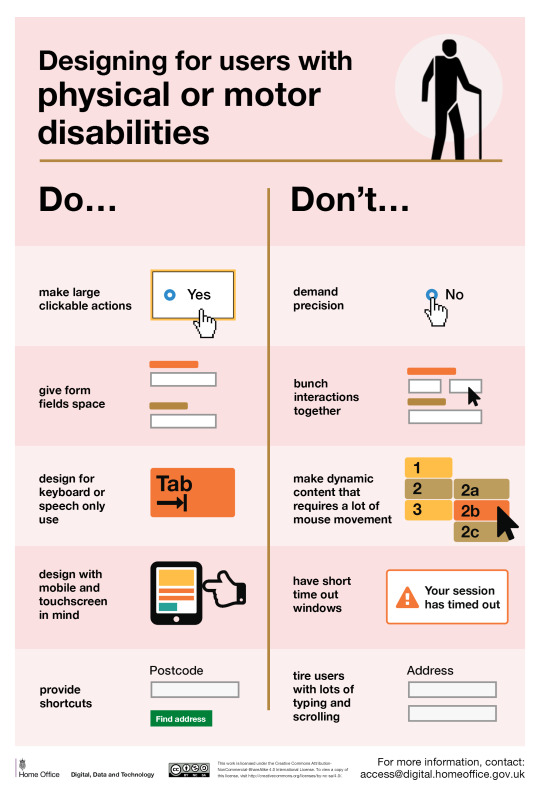
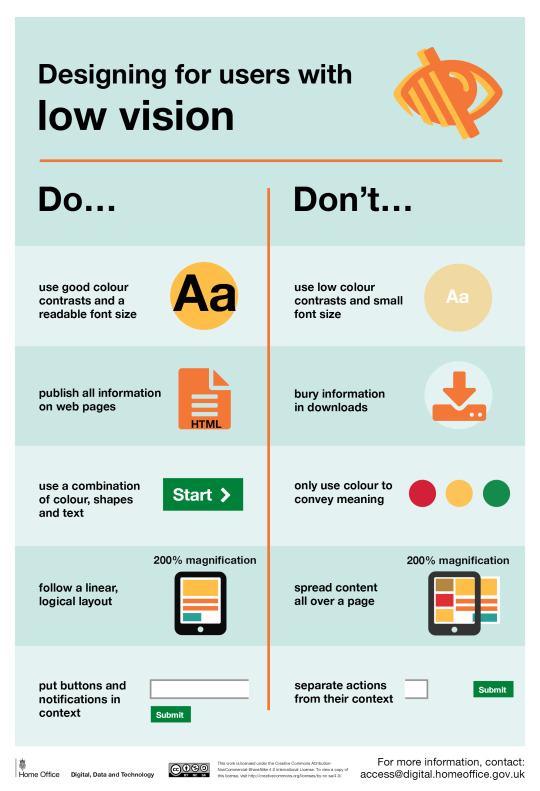

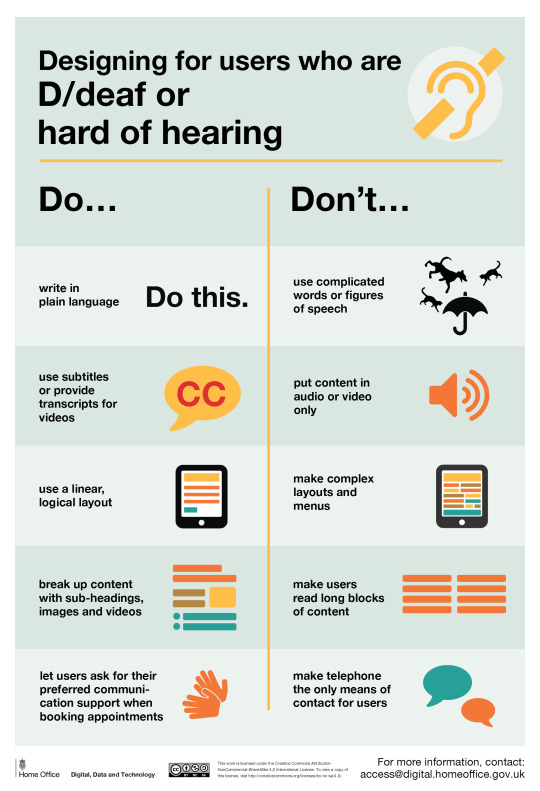
Do’s and Don'ts of Designing for Accessibility
Anxiety
Autistic Spectrum
Dyslexia
Physical or Motor Disabilities
Low Vision
Screen Readers
Deaf or Hard of Hearing
Find the PDFs for Do’s and Don’ts of Designing for Accessibility here.
155K notes
·
View notes
Text

Moments that leave an entire fandom in shock: Damian has just become the first person to whom Anya has felt honest and comfortable enough to trust her with the biggest secret that until now she had hidden from everyone for fear of being rejected and losing everything again.
Of course, Damian's reaction has been the most logical one, not believing her FOR NOW. Damian has always shown that he had suspicions about Anya having that gift, but for him it is still crazy that someone can read minds. Still, it's already canon that Damian knows her secret.
I am sure that in the future we will see Anya having a problem where she needs support and Damian realizes that she told him the truth.
A fact is a fact: Damian has become Anya's first ally, even if he didn't realize it yet.
741 notes
·
View notes
Text
One of the hardest parts of writing gay anything is that they (often) use the same pronouns. Balancing names and pronouns so that I'm not overusing either of them is maybe THE hardest part of writing for me, because if you use 'he' too many times in a row you'll lose track of who's doing what, but too many names is repetitive and awkward to read!
41K notes
·
View notes
Text
I just started watching "Apothecary diaries" and I absolutely love it.
The fact the story, a seinen, is able to have a female protagonist and not make her "Not like other girls", cool, smart but not a perfect genius, strong but not a fighter and scary....like actually SCARY without making her look down on or trying to put down other women.......AHHHHHH
Jinshi is amazing as a male lead, I haven't seen a "pathetic jealous pretty boy" since Tamaki in Ouran highschool host club.
All the side characters are well written and have their own time to shine.
And the way the story is not afraid of talking about the darker themes of the time, or sugarcoating them is really admirable.
Honestly, it has become one of my favourite shows ever.
#yes exactly this series is so underrated#jinshi being tamaki coded is so on point omg#maomao is a protagonist like no other#like that anime deserves the same recognition as the jjk or demon slayer
641 notes
·
View notes
Text

Some late night Adrien doodles ❤ Continuation from this post
236 notes
·
View notes
